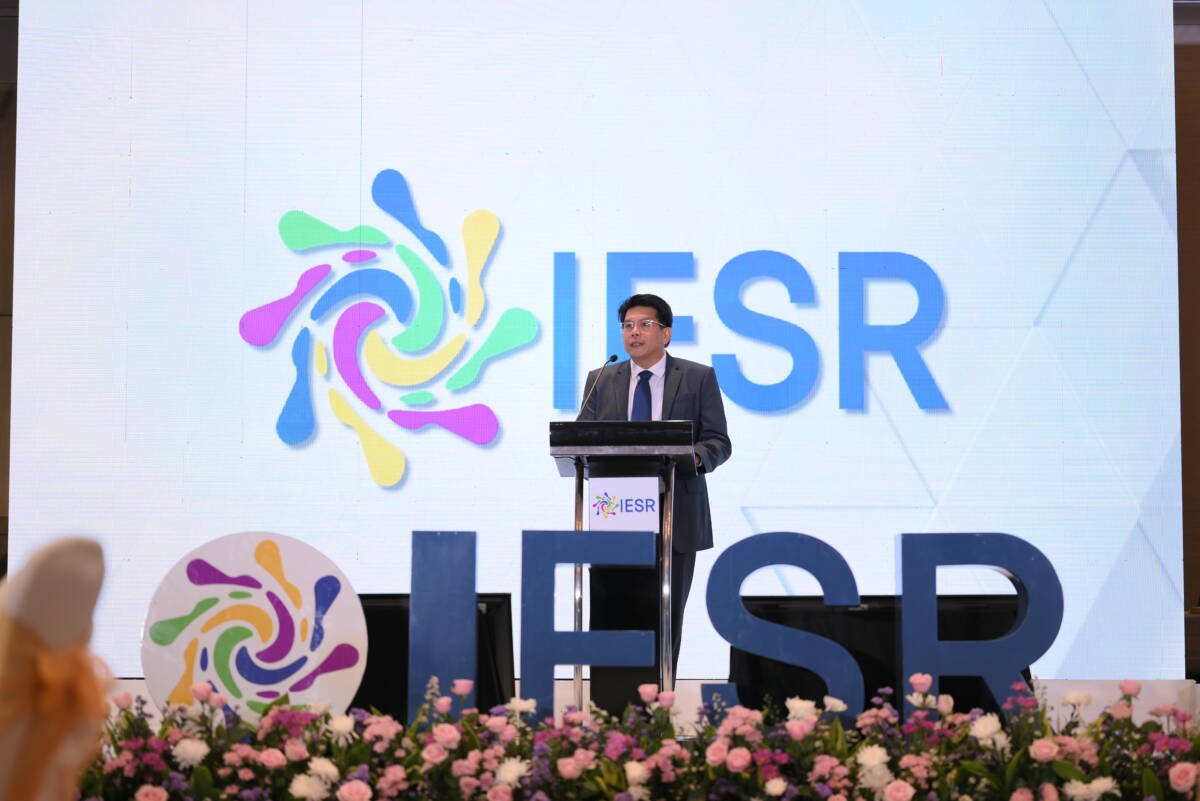Jakarta, October 5, 2024 – The results of the 42nd ASEAN Ministers on Energy Meeting (AMEM) in Laos on Thursday (26/9/2024) reflect AMEM’s half-hearted attitude towards energy transition in Southeast Asia, which encourages the development of renewable energy but still maintains the role of coal and gas in energy transition through the use of emission storage and capture technology (CCS/CCUS).
The Institute for Essential Services Reform (IESR) emphasizes that to mitigate the rising earth temperature due to emissions from burning fossil fuels, ASEAN should focus on efforts to accelerate the energy transition to renewable energy in the region. Renewable energy development will significantly affect the achievement of global climate targets rather than relying on clean coal technology (CCT).
AMEM, in its report, also supports cross-border electricity trade through the ASEAN Power Grid (APG) to strengthen energy security and regional resilience. IESR welcomed this, noting that the electricity used must come from renewable energy.
The Executive Director of the Institute for Essential Services Reform (IESR), Fabby Tumiwa, said efforts to strengthen energy connectivity in the region must be balanced with a clear commitment and set a significant renewable energy mix target to decarbonize the electricity sector. Until 2022, renewable energy’s contribution to ASEAN’s total primary energy supply (TPES) was only 15.6 percent, an increase of only 0.2 percent from 2021. This data shows that ASEAN member states must work harder to accelerate the growth of renewable energy.
The meeting also discussed the role of coal, which still dominates ASEAN’s energy mix. ASEAN has shown reluctance to move away from fossil fuels by appreciating the adoption of carbon capture and storage technologies, such as Carbon Capture Storage (CCS) and Carbon Capture, Utilization, and Storage (CCUS). However, IESR believes that ASEAN’s focus should be more on accelerating the development of renewable energy infrastructure, which has proven more effective and economical.
Arief Rosadi, Climate and Energy Diplomacy Program Manager, IESR, highlighted that CCS and CCUS technologies are still economically expensive and require high investment. CCS operating costs will be more costly if the processed gas has a low CO2 concentration. In addition, CCS/CCUS technology has not been tested for its reliability in reducing emissions, especially in Indonesia.
“Countries in the ASEAN region should encourage investments to significantly reduce emissions and provide long-term economic benefits, such as using renewable energy. The downward trend in renewable energy generation costs shows that renewable energy technology is increasingly competitive. Meanwhile, investment in CCT will prolong dependence on fossil energy and increase the risk of stranded assets,” Arief said.
The IESR study noted that the use of CCS requires a very large investment, around USD 3 billion, to reduce 25-33 million tons of CO2 within 10-15 years. Compared to Indonesia’s coal-fired power plant capacity of 44.6 GigaWatts in 2022, CCS will cost more with less return value in reducing carbon emissions and achieving climate targets. In addition, CCS costs six times more than wind power generation supported by energy storage technology.
On the other hand, Agung Marsallindo, Coordinator of the Southeast Asia Energy Transition Project, IESR, highlighted the limited public involvement in the AMEM process. This has led to a need for more transparency and accountability in the regional political process. IESR encourages a more open AMEM process, allowing public engagement to monitor and provide input.
“Civil society engagement should be part of a just and inclusive energy transition. Where decisions related to energy policy at the ASEAN level must also include independent civil society institutions and not take sides with the geopolitical interests of any country because these political decisions will have an impact on regional communities, so public participation in this process is essential to prioritize aspects of inclusiveness and justice in the energy transition,” Agung said.

